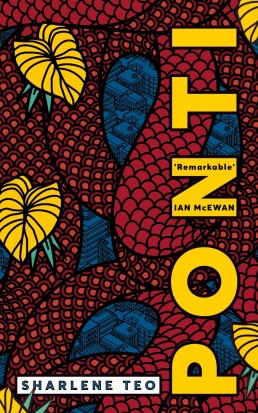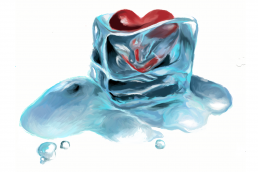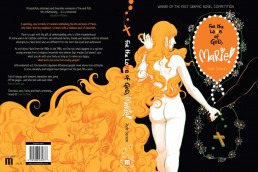Delilah Kealy-Roberts
Christin Hume, via Unsplash
Welcome to the first review of the Bechdel Book club. I hope you’re comfortable, well fed and watered, and ready to start smashing concepts of patriarchy within literature. You are? Fab, I thought for a sec it might just be me. We’re going to start of with the book that inspired the idea of the Bechdel Book Club, my most recent reading obsession…
I knew there was something different about Ponti by Sharlene Teo straight away but honestly, I was about half way through the novel before I realised what I loved so much about it:
It obliterates the Bechdel test.
Shatters it. Pieces on the floor. Not a man in sight! Well… not entirely true, but we’ll get to that.
Teo’s coming of age novel is set in Singapore and spans generations with its multi-author perspectives. Szu is our protagonist, a bit of an outsider, a slightly frustrating yet relatable teenager.
She listens to old-school Shoegaze music while dreaming about floppy haired British boys. I mean, she’s an identifiable character right? Just me? The tale focusses around her own life, her relationship with a new friend, Circe, and the uncomfortable dynamic she has with her mother, Amisa.
The sticky and close atmosphere of Singapore is echoed uncomfortably in Teo’s characters. None of the relationships are simple. There’s certainly love there, but a claustrophobic awkward love which doesn’t always seem to play out smoothly. Amisa, Szu’s mother, serves as a character within a character. She is, or was ‘Ponti’. Ponti was the lead role in the horror film that Amisa starred in during her youth, a theme that is never forgotten by the characters of the novel. Ponti (a monster otherwise known as a Pontianak), lures men in by her beauty and then viciously destroys them.
Woah, now! I hear you cry, slow down there. We just wanted a higher level of female representation; no one said anything about viciously destroying men… Sorry, I’ll rein it in.
But we’ve already got a ‘powerful woman’ dynamic set up here, right? Even if it is in the form of an old and long forgotten horror film. It doesn’t stop there, the female characters develop as their relationships warp and change. Friendships become more taught as they come up against family tragedies, eating disorders, and the general coming-of-age struggles that everyone is likely to face at some stage.
As for the men within the book, they all seem to fade into the background. In fact, they don’t just fade, they vanish, and it seems quite intentional. They run, they abandon, they are divorced, or they are removed through tragedy. This makes space for the female characters to come to the forefront. It allows us to see the women not only in relation to their husbands, lovers, brothers, or sons, but in relation to each other, and purely as themselves.
Teo’s enticing writing is sometimes cruel and sometimes warm. True to life and wonderfully readable. I would strongly recommend Ponti for anyone looking for fresh female perspectives and nuanced relationships which are fragile and real.
I wish there was more I could say without spoiling it, but if you haven’t already — get your hands on a copy! I want to hear all your thoughts and opinions! I guarantee you’ll enjoy it, even if you didn’t have ‘blood thirsty men destroying pontianaks’ down as your favourite genre…
—
[The next Bechdel Book Club review will be published here on 11th September 2018]
In search of some inspo to get your Bechdel Book Club brain going?
Some Bechdel Book Club questions:
- Three generations and three unique female perspectives, but which woman did you relate to the most Szu, Circe, or Amissa?
- A moment in time or a valuable relationship cut short, what did you make of the end of Szu and Circe’s friendship?
- Why do you think the symbolism of the pontiak monster was important to the novel? Nothing more than a cult horror film; or an ‘anti-man’ narrative?
Delilah Kealy-Roberts
Delilah is a BA English literature graduate and writer based in the North East of England. She specialises in anything dystopian, with a particular interest in gender politics (spoiler alert: gender roles don’t exist in the apocalypse). She has an affinity towards finding cheap flights out of the UK and colossal veggie breakfasts.








